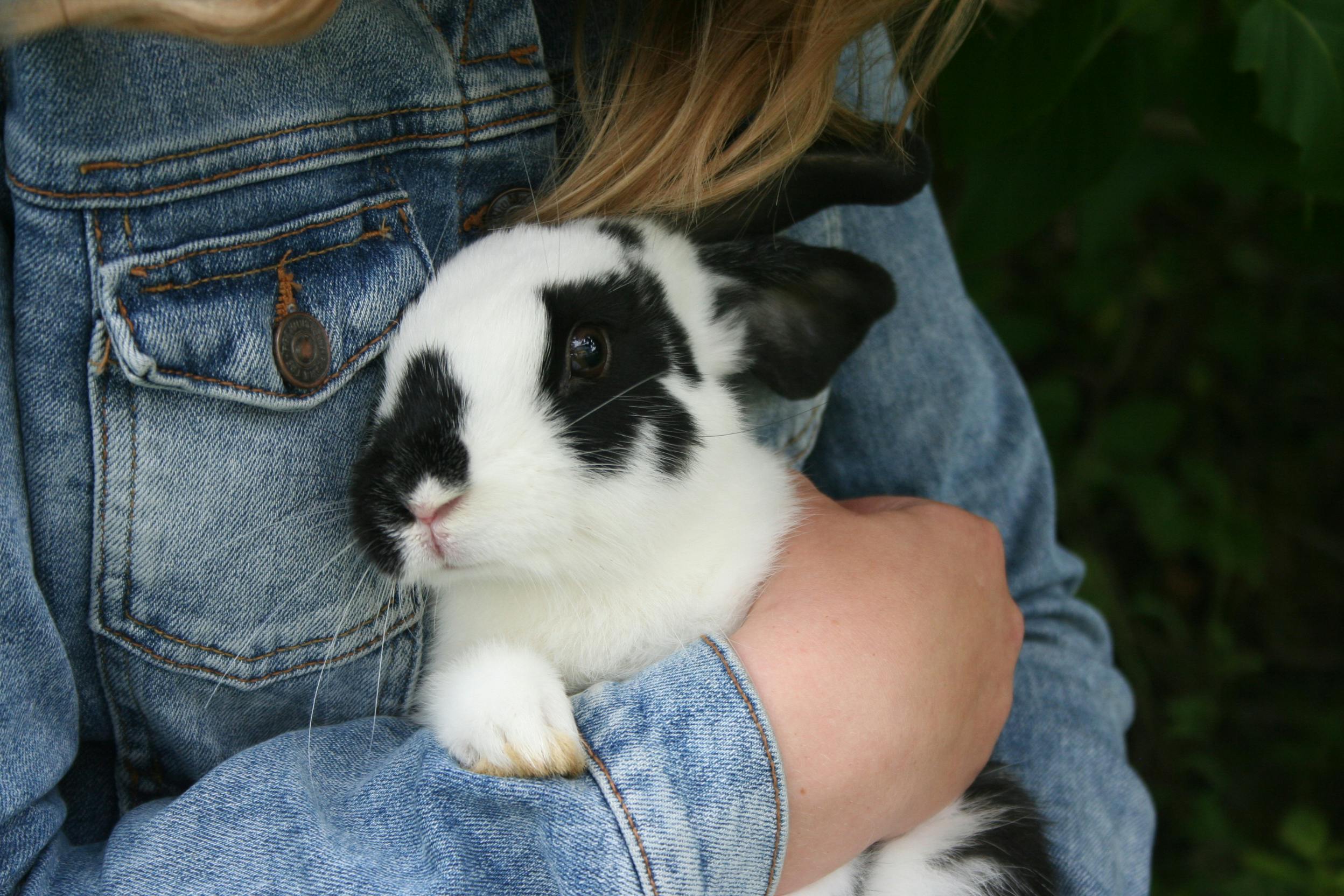
Apply Now


Effective Ways to Train Your Rabbit to Eat Carrots
Introduction to Rabbit Nutrition and Carrots
Training your rabbit to eat carrots can be a rewarding experience for both you and your pet. Carrots are often depicted as a staple in a bunny's diet, but they should be offered as an occasional treat rather than a primary food source. The nutritional needs of rabbits require a balanced approach, and incorporating carrots can bring variety as long as it's done correctly. Understanding the rabbit diet is essential to ensure your pet's health and well-being while enjoying the crunchy texture of fresh carrots. In this article, we will explore effective methods to train your rabbit to eat carrots while considering their dietary requirements and preferences. Rabbits thrive on high-fiber diets primarily consisting of hay, supplemented with fresh vegetables and occasional treats. Carrots provide some vitamins and can be appealing due to their sweetness. However, there are best practices for a rabbit owner when introducing any new food, including carrots. This article covers essential tips for feeding pet rabbits carrots safely and effectively, ensuring they enjoy learning about this crunchy vegetable without jeopardizing their health.Understanding the Nutritional Value of Carrots
Carrots are rich in beta carotene, which is essential for a rabbit's health as it contributes to their vision and immune system support. However, the high sugar content in carrots compared to their primary sources of rabbit food means they should be treated as an occasional treat. You should consider the nutritional needs of rabbits when determining portion sizes. When considering garden carrots, be sure to wash them thoroughly to remove pesticides and dirt. This preparation ensures that you are offering your pet a healthy, safe food option. The nutritional value of carrots may vary based on factors like soil conditions and growing practices. As part of the best food for rabbits, carrots should be viewed as a supplementary element that, when paired with high-quality hay and a variety of safe veggies, can enhance your rabbit’s diet.Best Practices for Introducing Carrots to Your Rabbit
Introducing carrots into your rabbit's diet should be done gradually. Start with small pieces, observing how they react. A key part of caring for bunnies is recognizing their cues; if your rabbit resists the carrot, don’t force it, as this could lead to negative associations. Instead, try offering it at different times or mixing it with other vegetables that your rabbit enjoys. Combining carrots with their usual feed helps ease the transition. For example, if your bunny enjoys leafy greens, try placing a small piece of carrot amongst the leaves. Over time, your rabbit may become more curious and willing to try this new food. Remember that patience is key in feeding pet rabbits; it may take several attempts before they accept carrots as part of their small treat roster.Understanding Rabbit Behavior and Preferences
Observing Rabbit Reactions to New Foods
Understanding rabbit behavior provides critical insight into how they accept new foods. For instance, domestic rabbits, unlike their wild counterparts, often rely on their owners to introduce food varieties. Take note of your rabbit's reactions when trying carrots. Some bunnies may eagerly chomp down, while others may exhibit caution. Close monitoring allows you to gauge their comfort level with carrots. Look for signs of positive engagement, like nibbling or pawing at the carrot. If they're hesitant, don’t despair. Gradually introducing small amounts helps foster a positive association with carrots over time. Tracking these behaviors can also help prevent common rabbit problems, such as dietary issues or gastrointestinal distress.Incorporating Variety in Your Rabbit’s Diet
While promoting a love for carrots, remember to incorporate variety within your rabbit's feeding regimen. Not all rabbits will prefer carrots equally, which emphasizes the need for inclusivity in their diet. Catering to their palatable priorities, you might consider offering an array of vegetables for rabbits, such as broccoli, leafy greens, or bell peppers, ensuring that they do not solely depend on one food item. Diversifying your pet’s diet increases the likelihood of them being open to new foods. This approach encourages exploration and healthy eating habits. As part of your feeding tips for rabbits, pairing carrots with equally nutritious and safe veggies is crucial for keeping your bunny happy and healthy.Creating a Positive Environment for Feeding
Enriching Your Rabbit's Feeding Experience
Creating an environment that promotes positive eating experiences can make a significant difference in how your rabbit interacts with their food. Ideally, an enriching rabbit environment involves providing various textures, scents, and methods of obtaining food. For instance, placing carrots in different locations or hiding them in chew toys can stimulate your rabbit's curiosity. Experiment with different feeding routines, from timed schedules to free feeding. Each bunny is unique, and recognizing whether they thrive on structure or spontaneity will help you refine your feeding approach. Encourage interactive feeding, enhancing your rabbit’s natural foraging instinct. This not only assists in carrot training but also strengthens your bond through shared experiences.Managing Your Rabbit's Carrot Intake
Monitoring your rabbit's carrot intake is crucial to ensure their overall health. Regularly provide small portions while balancing their diet with appropriate high-fiber foods. A high fiber diet is essential for the digestive health of rabbits. Overindulgence in carrots can lead to obesity and other health concerns. Establishing a feeding schedule can help regulate their consumption. It is also advisable to assess their weight regularly, so you can make adjustments as necessary. Consulting a veterinarian can provide insights into portion control, especially in assessing whether your pet rabbit has any dietary restrictions or health issues.Common Challenges and Solutions with Rabbit Training
Identifying Issues with Feeding Habits
Rabbit owners might encounter challenges when trying to train their pets to accept carrots. If your bunny shows disinterest or refuses to eat carrots after multiple attempts, it might be worth evaluating their overall nutrition. Sometimes, common rabbit diseases may lead to changes in appetite, so vigilance is essential. Pay attention to any behavioral changes when introducing new foods, and consider consulting a veterinarian if unusual habits persist. They can assist in determining other underlying conditions that could be influencing your rabbit’s feeding preferences, ensuring that the carrot training process moves smoothly.Addressing Dietary Issues in Rabbits
To successfully train your rabbit to eat carrots, it helps to be aware of dietary issues that might arise. For instance, excessive sweet treats may lead to digestive problems, such as diarrhea. As part of rabbit care essentials, keeping a list of safe foods for rabbits, including healthy vegetables, can be beneficial. Carrots, while tasty, should only form part of a rabbit’s diversified diet. Educating yourself about rabbit nutrition and its significance will empower you to make informed decisions that cater to your bunny's needs, keeping them vibrant and healthy while indulging in treats like carrots.Strategies for Long-Term Success in Training Your Rabbit
Building Trust and Bonding
One of the most effective ways to encourage your rabbit to eat carrots is through trust-building interactions. Engaging in bonding activities like gentle petting or creating playtime can foster a positive relationship where your bunny feels secure. When they associate you with enjoyable experiences, they are more likely to explore foods you offer. Additionally, be consistent in your tactics. Regular feeding times and routines help rabbits feel secure and understand what to expect. A structured routine can encourage optimal eating behaviors. Incorporate patience in your strategy; this ensures that when you offer them carrots, they approach you without fear.Keeping Your Rabbit Engaged with Healthy Snacks
Beyond carrots, incorporate other treats as part of your rabbit's diet to maintain their interest in feeding. Alternating between different safe vegetables encourages your bunny’s palate while preventing reliance on a singular item. This approach mirrors the diversity they would encounter in nature, offering a well-rounded rabbit diet where carrots play the role of an occasional and enjoyable addition. Offering rewarding snacks can also be beneficial for training. For instance, pairing a bite-sized carrot with other crunchy, healthy alternatives, such as apple slices or leafy greens, provides new textures and flavors that enhance their feeding experience.Q&A Section
What are the signs of a healthy rabbit?
Signs of a healthy rabbit include a bright, alert demeanor, active engagement with toys, regular grooming, and consistent eating habits. Healthy rabbits maintain a normal weight and exhibit regular, well-formed droppings.How do I know if my rabbit is overweight?
If your rabbit has difficulty moving around, displays a lack of energy, or if you can’t easily feel their ribs, they may be overweight. It’s important to maintain a balanced diet rich in fiber and low in sugary treats.Can I feed my rabbit other vegetables in addition to carrots?
Yes, rabbits benefit from a variety of vegetables, including leafy greens like romaine lettuce, cilantro, and parsley. Always ensure that any added vegetables are safe and suitable for rabbit consumption.What should I do if my rabbit refuses to eat carrots?
If your rabbit shows reluctance to eat carrots, try offering them alongside other foods they enjoy. Ensure fresh carrots are prepared correctly, washed, and cut into manageable sizes.How often should I give my rabbit carrots?
Carrots should be given as a special treat rather than a daily staple. A few times a week in small portions is ideal, ensuring the bulk of their diet consists of hay and other high-fiber vegetables.
